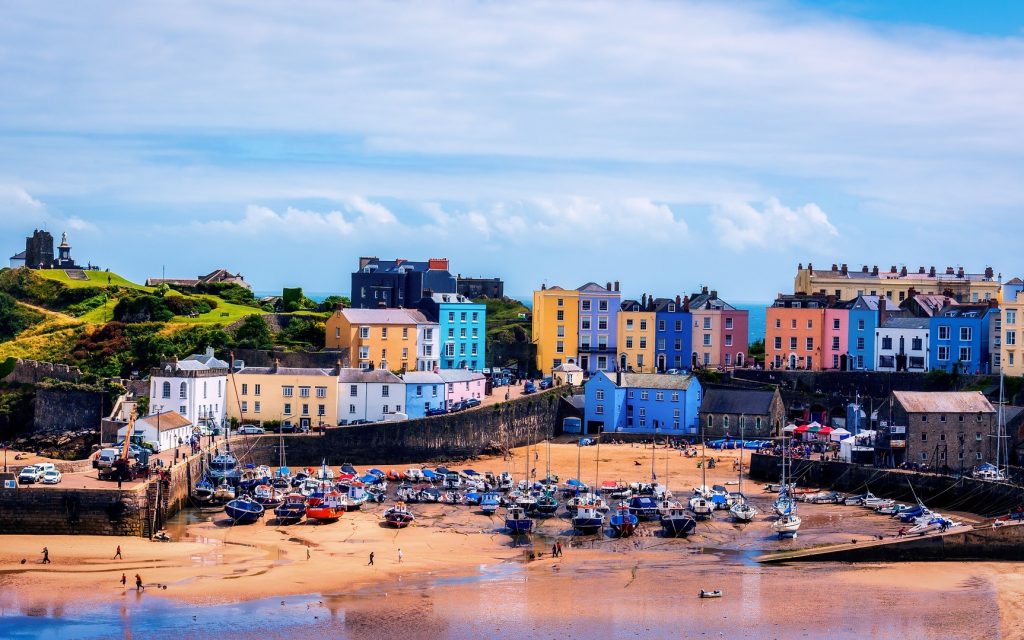 Economy
Economy 
In the second of a series of articles looking at the potential for new devolved taxes, we consider whether a tourism tax will work in Wales
One of the little quirks many of us will have experienced while holidaying on the continent is being asked to contribute a small amount (I recall €1.32 on a recent trip to Barcelona) in addition to your accommodation bill as a tax or levy. It’s usually not a big sum of money compared to the overall bill, and it’s often referred to as a ‘city tax’ indicating that your money will collected by your destination’s regional authority.
In a city such as Barcelona which welcomes millions of tourists every year, this tax is an enormous revenue generator. We’re talking €41 million in 2014. The Catalonia authorities justified its introduction in 2012 on the basis that the cost for clean beaches, facilities and streets should not only be borne by residents and businesses – tourists should also pay their share.
And tourism taxes have also been introduced in less popular destinations, and in more pragmatic ways. For example, in Lithuania a tax of €1 per night per person has been introduced in two resorts to fund infrastructure projects and promote local tourism.
A Welsh tourist tax
We suggest that a tourism tax should operate in Wales as a per night charge on hotel room and holiday park stays, capped at seven nights. The tax would be collected and managed by local authorities, and the money raised would be allocated to fund local authority and police services.
A maximum amount would be set by legislation, as well as the option to set it at a zero rate to reflect the variations in the tourism industry in different parts of Wales. For example, in an area with very low levels of tourism it may be overly burdensome to collect a tourism tax and local representatives should therefore be able to set it at a zero rate where this is appropriate.
Would it work?
Let’s be frank, a tourism tax won’t raise vast sums of money, nor is it targeting a particularly harmful form of economic or social activity. But tourism does come at a cost to our communities, particularly public services and amenities such as the police, public toilets and litter. Equally important, is that the income generated by the tourism industry does not necessarily benefit these services.
Simply put, a tourism tax is a means of making tourists directly contribute to both the services they need as a temporary resident and those which make an area more attractive and accessible.
What might the industry say?
In the majority of EU states where a tourism tax or levy operates, the tourism accommodation industry is exempt from VAT. This presents a problem for Wales as we do not have the power to change the VAT rules for the tourism industry, so can only increase the tax burden faced by the industry (unless of course, they make changes elsewhere such as to business rates).
Understandably, the tourism industry is cautious about the idea of such a tax, fearing that it will put travellers off visiting Wales. This makes the rate that it is set at and the understanding of where the money is being spent very important if a tourism tax is to succeed in Wales.
Tax vs. Levy
For a tourism tax to be accepted by Wales’ tourism industry, they need to feel a sense of ownership over how the revenues are spent. Tourists are their customers, and it may seem unfair if their customers were being asked to pay a tax and they did not understand where the revenues were being spent. Therefore, the tax could operate as a levy, with those in the industry having some say in how the revenue is spent.
Alternatively, the revenue could be earmarked for tourism-related services which make an area a more attractive destination. This covers a myriad of options, including marketing the area elsewhere, additional litter collections or even more PCSOs patrolling the streets.
It may at first seem awkward to suggest that tourists should pay a little more to come to Wales. After all, we invest heavily in trying to attract them. But tourists do place an additional burden on our resources, and we think that they should contribute to the cost of this.
Either if a levy or a tax is pursued, it is important that the revenue is earmarked to support the local tourism industry in some way so that operators do not feel that their customers are being unfairly targeted.
Nisreen Mansour is policy & research officer at the Bevan Foundation.
Each week, we will be profiling our interim recommendations for new devolved taxes for Wales. To learn more about our work on devolved taxation, please click here.


